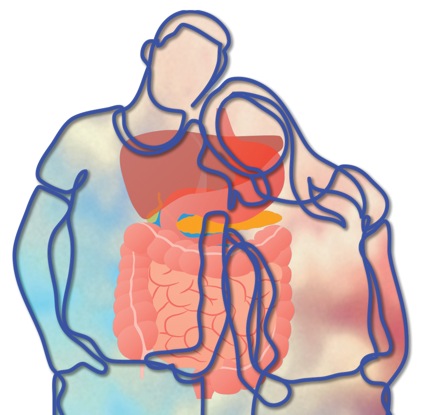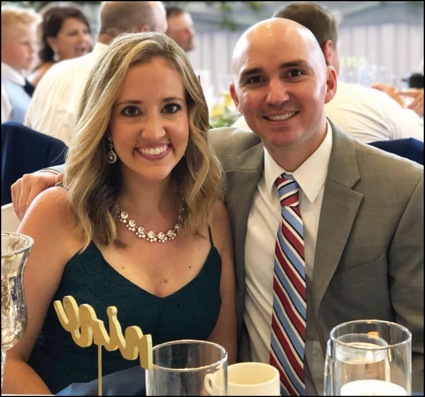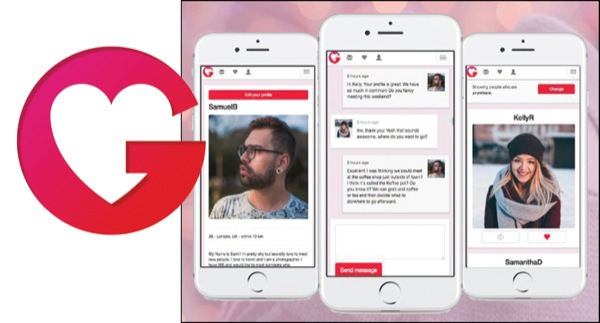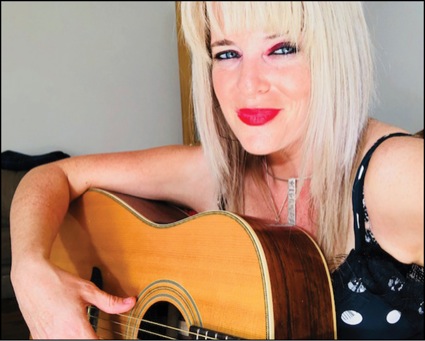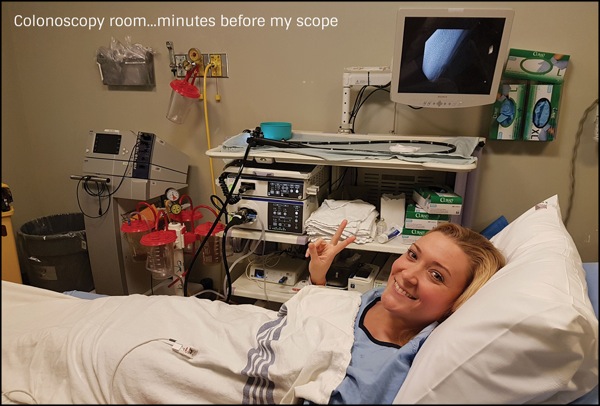When Natalie Hayden was diagnosed with Crohn’s disease at the age of 21 years, her boyfriend at the time did not visit her at the hospital. In fact, he broke off their relationship the day she was discharged home. Three years later, Ms. Hayden was in search of a new partner when she attended a charity event where she met someone intriguing enough to warrant exchanging phone numbers.
“We made plans for a first date, and while I was getting ready for it, I developed horrible GI pains and issues,” recalled Ms. Hayden, who blogs about her experiences with inflammatory bowel disease at lightscameracrohns.com. “I was so sick that I had to text the guy from the bathroom, while I was trying to get ready for the date, to say I wasn’t feeling well with my Crohn’s and that I was headed to the hospital.”
Rather than being sympathetic to her illness, the date “laughed at me and made jokes about the fact that I was making up excuses so that I didn’t have to see him,” she said. “His behavior that evening revealed his true colors and helped me dodge a major bullet.”
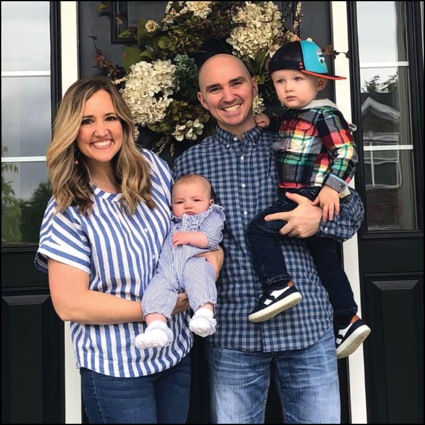
First dates are notorious for being disastrous, with their awkward silences, failed attempts at humor and other misalignments. Add a gastrointestinal condition like Crohn’s disease to the mix and things can get even messier.
“What if you unwittingly eat something that makes you feel uncomfortable and you end up rushing to the restroom three or four times during a date?” asked Phil Beesley, a tech entrepreneur with irritable bowel syndrome.
After noticing that dating was one of the most common topics in online IBS support groups, and hearing of “horrific dating stories” like Ms. Hayden’s, Mr. Beesley developed Gutsy Dating, an app to facilitating romance for people with digestive issues.
Like other dating apps, Gutsy Dating features pictures and text profiles of users, but also includes a prominently featured field where men and women can specify what illnesses they have. The idea is to connect like-boweled people.
Some users choose not to disclose that information, but many list IBD or IBS, along with perhaps other conditions that often accompany these conditions.
“Socializing with a condition like IBS or IBD is difficult at best, but dating is much more difficult,” Mr. Beesley told Gastroenterology & Endoscopy News. “Connecting with others that completely understand your requirements makes dating more comfortable.”
An app like Gutsy Dating addresses an important challenge that comes with having a chronic digestive illness, said Chantel Wicks, who as the host of the Guts and Glory podcast discusses the ups and downs of living with IBD. However, Ms. Wicks, who has Crohn’s colitis, worries that an app targeting only people with a digestive illness might have an inadvertent negative effect.
“I worry it could be isolating because it might pigeonhole that person,” said Ms. Wicks, who lives in Toronto. “I wouldn’t want people to feel like they can only date people in a similar situation. That said, it could allow someone to connect with another person they can relate to, and if this app helps break the stigma people feel about themselves, it’s 100% useful.”
Altered Expectations
Nicola Dames, owner of Vanilla Blush (www.vblush.com), a Glasgow, Scotland–based online clothing retailer that offers female lingerie and male underwear for people with ostomies, acknowledged that the realities of a digestive illness clash with societal expectations of what intimacy should look like.
“Particularly from a man’s perspective, there’s nothing more off-putting than when his sexy woman suddenly needs to stop in the throes of passion to use the loo, or worse, they don’t make it to the loo!” she said in an email interview.
Ms. Dames, who has an ileostomy herself, said having an ostomy means she doesn’t have to worry about those accidents any longer. “Sex with an ostomy, in my honest opinion and my personal experience, is a lot better, since the bag can be covered and you can enjoy sex because your diseased organ is no longer an issue,” she said.
Ms. Dames advised both young and old patients with stomas who are anxious about dating—“let’s face it, older people are not dead and therefore still like intimacy”—not to tell the other person about their stoma immediately. Not only is that conversation fraught with shame and fear but “simply because, even if you did not have a stoma, who talks about poop on the first date?”
Despite Ms. Dames’ positive experience with a stoma and sex, she did not sugarcoat the impact that ostomy surgery can have on bedroom activity, pointing to friends who have experienced loss of libido, desire and erectile dysfunction as a result of the procedure.
“This can place a tremendous strain on that individual and their relationship,” she said. “Marriages have broken up, but equally lots of marriages have started despite having an ostomy. It’s not about the ostomy; it’s about the person.”
Ms. Dames said if a potential partner “has an issue with a stoma, I’d say think twice and thrice about what that says of the person you are meant to be spending the rest of your life with. Simply put, if your future spouse struggles to cope with you having a stoma, how do they expect to cope 40 years down the line when the two of you are placing your false teeth in the glass beside your bed before a night’s sleep?”
Seeking: A Partner With Flexibility
To be sure, dating with a digestive condition comes with unique challenges that make building a relationship tricky, Ms. Wicks said.
“Especially early on, there is an expectation that you’ll stick with plans that you’ve made, whether that’s going to the movies or a museum,” she said. “But all of us with gastrointestinal issues have had times when we wake up and feel bad and need to cancel plans, which can come off sounding like an excuse.”
Addressing those potential misunderstandings and warding off other difficult situations may not require shutting oneself off from the broader dating pool, but rather communicating openly, she said.
“It’s definitely a big step to take to tell someone you’re chronically ill with no cure, but you need to be open with a potential partner sooner rather than later,” she said.
Opening up that way may not always work out well, but ultimately it weeds out the less desirable potential partners, as Twitter user M.W., who asked for her handle and name not to be used in this story, found out. M.W. was diagnosed with Crohn’s disease just before turning 18 and soon after forayed into the dating world.
“I met a guy at a restaurant, and we sat and talked and I told him about my condition, because he asked how I was so thin,” she said.
The encounter went downhill from there, with the date being “rude and obnoxious.”
“He had no idea what Crohn’s was, and asked me if it was contagious,” she said. “I was so offended that I almost said, ‘Sure, let me breathe on you; you might catch it.’ I made up an excuse to leave shortly after.”
On another rendezvous in her early 20s, after M.W. revealed she had IBD, her date went on a tirade about the pharmaceutical industry being the cause of many illnesses. “He told me I should stop all meds and drink green tea and try random herbs,” she recalled. “As soon as I was done eating, I said I had to go buy some herbs right away, and left.”
Most of M.W.’s dates were with “decent men who were not thrown off by my illness and were sympathetic to what I needed to go through,” she said. Now, she is 10 years into a successful marriage.
The invisible nature of most digestive illnesses makes it easy to avoid talking about the condition, particularly since bringing it up may be embarrassing, said Robert Maunder, MD, a professor in the Department of Psychiatry at the University of Toronto, who specializes in the care of patients with chronic illnesses.
“It is hard to know how much to say at first and to figure out the best timing, and there are potential problems with having the conversation too soon or too late,” Dr. Maunder said.
The “sense of acceptance” that comes from meeting others with a shared experience through an app like Gutsy Dating can alleviate those anxieties and bypass some of the complexities of dating with a chronic illness, Dr. Maunder said. However, he also expressed reservations about the potential impact of choosing to stick to a relatively small group of potential dating partners.
“I imagine that restricting your dating options to people who share some of your illness experience might feel too limiting for a lot of people,” Dr. Maunder said. “Maybe it would be most useful early on, for a person who is trying to figure out how to manage the complexities and challenges of dating with a digestive disorder.”
The GI’s Role
Although gastroenterologists may be reluctant to broach the topic of relationships with their patients, Dr. Maunder said clinicians do not need to be relationship experts to talk about dating with their patients.
“They should just feel comfortable asking about and listening to what patients say,” he said. “Worries about relationships are a very important part of being ill, and for people who are not currently in a relationship, that can mean worries about dating or about loneliness.”
Ms. Wicks agreed that clinicians should play more of a role in helping patients navigate the challenges of dating with a digestive condition.
“At least in Canada, patients are rarely connected with a social worker or therapist to deal with issues like dating and to explore how to have a conversation about their disease,” she said. “Making sure people with IBD are mentally and emotionally prepared, giving them a toolbox to deal with a very difficult disease that can be isolating, and helping them not feel embarrassed and move forward with their lives is a really important aspect of disease management.”
—David Wild


